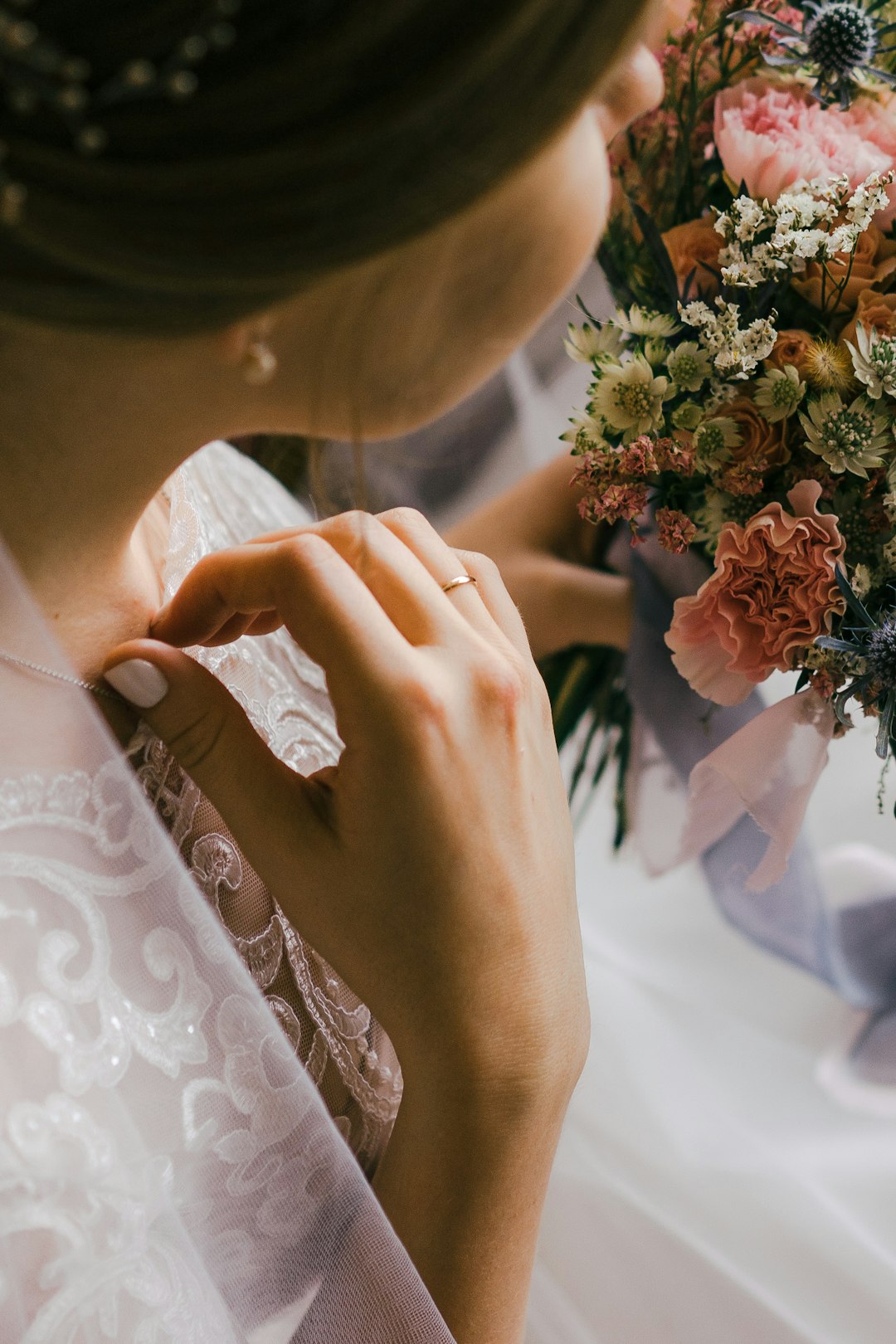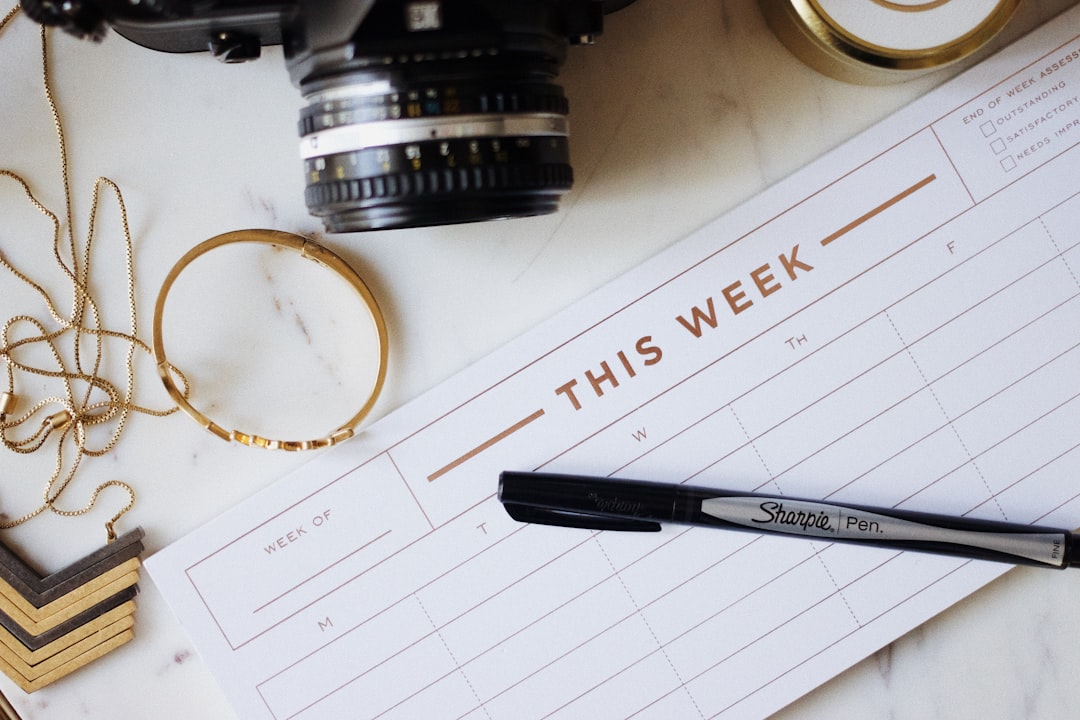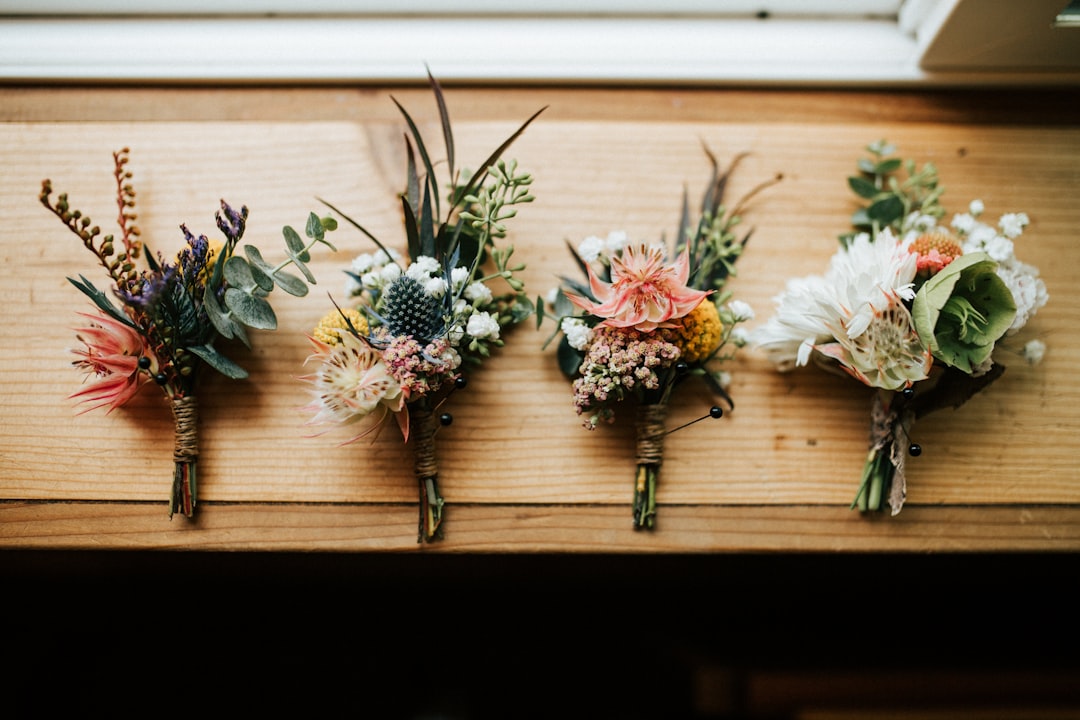Planning a wedding can be an exciting yet overwhelming task. With so many decisions to make and details to attend to, it's crucial to have a comprehensive wedding to-do list to stay organized throughout the planning process. Whether you have just started the planning or are well on your way, this article will guide you through the essential tasks to ensure your special day is one to remember.
One of the first tasks on any wedding to-do list is setting a budget. Determine how much you are willing to spend and allocate funds to different aspects of the wedding, such as venue, catering, attire, and decorations. This will help you make informed decisions and avoid overspending.
Once you have a budget in place, the next step is to create a guest list. Consider the size of your venue and your budget when finalizing the number of invitees. Keep track of RSVPs and any dietary or special requirements to ensure all your guests are taken care of on the big day.
Additionally, securing a venue and booking key vendors, such as a photographer, caterer, and florist, should also be on your priority list. Popular wedding venues and vendors tend to get booked up quickly, so it's advisable to start your search well in advance.
By tackling these essential tasks early on, you can set a solid foundation for planning your wedding day. Stay organized, stick to your budget, and allow yourself enough time to make decisions, and you'll be on your way to creating a memorable celebration of love.## Choosing the Perfect Wedding Date
Selecting the right wedding date is one of the first and most crucial decisions a couple must make when planning their big day. A carefully chosen date can set the tone for the entire wedding experience, ensuring that everything falls into place seamlessly. Here are some essential factors to consider when choosing the perfect wedding date:
1. Seasonal Considerations: The time of year can greatly impact the mood and atmosphere of a wedding. Whether you envision a vibrant spring ceremony, a romantic summer celebration, a cozy autumn affair, or a magical winter wedding, the season you choose can influence numerous aspects, including the venue, decor, attire, and menu.
2. Weather Patterns: It's essential to consider the expected weather conditions during your chosen season before finalizing a date. Research historical weather patterns in your desired location to avoid scheduling your wedding during a rainy season or extreme weather conditions, which could potentially disrupt outdoor ceremonies or travel arrangements.
3. Availability of Loved Ones: Consulting close family members and friends who play a significant role in your wedding can help determine the best date that accommodates their availability. Ensure that key individuals, such as immediate family, wedding party members, and close friends, are able to attend on your chosen date.
4. Holidays and Special Occasions: While holidays and special occasions can add a touch of magic to your wedding, they can also present logistical challenges. Consider the impact of holiday bookings on availability and pricing for venues and vendors. Moreover, certain dates may clash with family reunions or other significant celebrations, potentially affecting guest attendance.
5. Venue and Vendor Availability: Book the date for the venue first! Once you have identified the desired venue, ensure that your chosen date aligns with their availability. Popular venues often have bookings well in advance, so it is advisable to make arrangements as early as possible. Likewise, check the availability of photographers, caterers, florists, and other key vendors before finalizing the date.
6. Personal Significance: Some couples choose to tie the knot on a date that holds personal significance to them, such as anniversaries, the date they met, or their parents' wedding date. Incorporating such sentimental value can make the day even more special and memorable.
By considering these essential factors, couples can confidently select a wedding date that suits their preferences, ensures the availability of loved ones, and sets the stage for a truly unforgettable day.
| Factors to Consider when Choosing the Perfect Wedding Date |
|---|
| - Seasonal considerations |
| - Weather patterns |
| - Availability of loved ones |
| - Holidays and special occasions |
| - Venue and vendor availability |
| - Personal significance |
Setting a Realistic Budget
When it comes to planning a wedding, setting a realistic budget is an essential task that lays the foundation for the entire planning process. It ensures that couples have a clear understanding of their financial constraints and helps prevent overspending or getting into unnecessary debt. Here are some important things to consider when setting a budget for your wedding day.
Know Your Financial Resources: Start by taking a comprehensive look at your financial situation. Consider both your own and your partner’s income, savings, and any contributions from family members. This will give you a realistic idea of how much you can afford to spend on various wedding elements.
Prioritize Your Must-Haves: Determine what aspects of the wedding are most important to you as a couple. Is it the venue, the food, the photography? By identifying your priorities, you can allocate a larger portion of your budget to these key areas and make compromises in other areas that are less important to you.
Research Average Costs: It's crucial to have a good understanding of the average costs associated with different wedding elements in your area. This will help you set realistic expectations and allocate your budget accordingly. Consider factors such as venue rental fees, catering costs, floral arrangements, and photography packages. Online wedding planning websites and local wedding vendors can provide valuable insights into average costs.
Create a Detailed Budget Spreadsheet: Once you have an idea of your financial resources and the average costs, it's time to create a detailed budget spreadsheet. Divide it into categories such as venue, catering, attire, flowers, entertainment, and transportation. Allocate a specific amount for each category to ensure you stay within your overall budget.
Account for Unexpected Expenses: Weddings often come with unexpected expenses, such as last-minute vendor fees or additional guests. Set aside a small contingency fund for these unforeseen costs to avoid any budgetary surprises.
By setting a realistic budget, couples can enjoy the wedding planning process without unnecessary financial stress. It allows for proper allocation of resources, makes decision-making easier, and ensures that every aspect of the wedding is planned within the couple's means.
| Key Points | Setting a Realistic Budget |
| Importance | Ensures financial constraints are understood |
| Prevents overspending and unnecessary debt | |
| Steps | 1. Know your financial resources |
| 2. Prioritize must-haves | |
| 3. Research average costs | |
| 4. Create a detailed budget spreadsheet | |
| 5. Account for unexpected expenses |
Creating a Guest List
When it comes to planning a wedding, one of the essential tasks is creating a guest list. The guest list determines the number of people who will be present on your special day and sets the overall tone for the event. Here are a few important factors to consider when compiling your guest list:
1. Determine Your Budget: Before you start drafting the guest list, it's important to establish your budget. The number of guests will directly impact various aspects of your wedding, such as catering, venue size, and overall expenses. Knowing your budget constraints will help you determine the number of people you can afford to invite.
2. Consider the Venue Capacity: It's essential to select a venue that can comfortably accommodate your desired number of guests. Check with the venue management to determine their maximum capacity and make sure it aligns with your guest list. This will help prevent any unexpected issues or overcrowding on the day of your wedding.
3. Prioritize Close Family and Friends: Start by listing immediate family members, close relatives, and dear friends. These are the people who have played significant roles in your life and should be present to celebrate your special day. Consider any limitations on guest numbers and aim to include those who mean the most to you.
4. Maintain Balance: While it's natural to want to invite everyone you know, it's important to maintain a balance between family, friends, and any other groups of guests. This will help create a harmonious atmosphere during the wedding. Aim for a blend of close friends, relatives, and acquaintances to ensure a diverse and enjoyable celebration for everyone.
5. Plan Early and Communicate: Start creating your guest list well in advance to allow room for changes, additions, or even subtractions. Communicate with your partner and families to ensure everyone is on the same page. Consider any cultural or traditional obligations that may impact your guest list and strive for open and honest communication throughout the planning process.
Creating a guest list can be one of the most challenging aspects of wedding planning. It requires careful consideration of various factors while navigating potential challenges. However, by keeping these key points in mind, you can successfully compile a guest list that reflects your desired ambiance and ensures a memorable day for all.
Selecting and Booking the Venue
Finding the perfect wedding venue is one of the most crucial tasks when planning a memorable day. The venue sets the tone for the entire event and can greatly influence the overall experience of the couple and their guests. To ensure a smooth planning process, it's essential to follow a systematic approach in selecting and booking the venue.
1. Define your requirements and budget: Before starting the search, determine your wedding budget and create a checklist of your venue requirements. Consider factors such as location, capacity, ambiance, and facilities. This will help narrow down your options and prevent wasting time on venues that don't meet your needs.
2. Research and shortlist potential venues: Start by compiling a list of potential venues that align with your vision and budget. Utilize online wedding directories, recommendations from friends and family, and social media groups to gather information. Review their websites and social media pages to get a sense of their aesthetics and past wedding experiences.
3. Visit the venues: Once you have a shortlist, it's crucial to visit the venues in person. Schedule appointments with the venue representatives to tour the facilities and discuss your wedding plans. Pay attention to the venue's cleanliness, layout, maintenance, and available amenities. Don't shy away from asking questions about their policies, restrictions, and any hidden costs.
4. Compare and evaluate: After visiting all the venues, compare their offerings, prices, and suitability. Consider factors such as the venue's availability on your preferred date, proximity to accommodation options for guests, and the overall ambience that will complement your wedding theme. Compile a list of pros and cons for each venue to help you make an informed decision.
Venue Selection Checklist
Here is a checklist to help you evaluate and compare different venues:
| Aspects to Consider | Points to Remember |
|---|---|
| Location | Accessibility, proximity to accommodation, transportation options |
| Capacity | Ensure the venue can accommodate your expected number of guests |
| Amenities and Facilities | Check the restroom facilities, parking availability, and provision of audiovisual equipment |
| Layout and Design | Consider the flow of the event and whether the venue aligns with your vision |
| Cost and Packages | Compare the overall costs, including rental fees, catering, and additional charges |
| Policies and Restrictions | Inquire about any limitations or restrictions imposed by the venue |
| Flexibility in Decorations | Ask about the freedom to decorate the venue according to your preferences |
By following a well-structured approach and using this checklist, couples can confidently select and book the perfect wedding venue that fulfills their dreams and ensures a magical and unforgettable day for all.
Hiring a Wedding Planner or Coordinator
Planning a wedding requires a tremendous amount of time, effort, and attention to detail. With so many tasks to manage, it's no wonder many couples choose to enlist the help of a professional wedding planner or coordinator. These experts in the field can alleviate stress and ensure that every aspect of your special day runs smoothly. Here are a few key reasons why hiring a wedding planner or coordinator should be high on your wedding to-do list:
1. Expertise and Experience
Wedding planners and coordinators bring a wealth of expertise and experience to the table. They have a deep understanding of the industry, including the latest trends, best vendors, and potential pitfalls to avoid. By tapping into their knowledge, couples can benefit from valuable recommendations, sound advice, and cost-saving strategies.
2. Time and Stress Management
Planning a wedding can quickly become overwhelming, especially for couples with busy lives or demanding careers. Hiring a wedding planner or coordinator allows them to offload the numerous tasks and deadlines associated with the planning process. From vendor selection and contract negotiations to timeline management and RSVP tracking, these professionals excel at managing details, ensuring nothing slips through the cracks.
3. Vendor Network and Negotiation Skills
Wedding planners and coordinators work closely with a diverse network of trusted vendors, including caterers, photographers, florists, and musicians. Leveraging their industry connections, they can recommend reputable vendors that suit your style and budget. Moreover, their negotiation skills can potentially secure you better deals, discounts, or added perks, maximizing your wedding budget.
4. Creativity and Personalization
Wedding planners and coordinators excel at turning your vision into reality. By working closely with you, they can bring creative ideas, unique themes, and personalized touches to enhance your wedding experience. Whether it's designing beautiful tablescapes, suggesting innovative entertainment options, or crafting custom wedding favors, these professionals excel at making your dreams a reality.
5. On the Day Coordination
A wedding planner or coordinator is an invaluable asset on the actual day of your wedding. They will handle all the logistics, ensuring that vendors arrive on time, the ceremony and reception spaces are set up correctly, and that the day's events run smoothly. This leaves you and your loved ones free to relax, enjoy each moment, and create lasting memories.
In conclusion, hiring a wedding planner or coordinator can be a worthwhile investment for couples looking to have a memorable wedding day without the stress and overwhelming workload. Their expertise, industry connections, and attention to detail will help ensure a seamless, worry-free planning experience, allowing you to focus on what truly matters – celebrating your love.
Finding and Booking the Right Vendors
When planning a wedding, finding and booking the right vendors is crucial for creating a memorable day. With so many options available, it can be overwhelming to select the perfect professionals to bring your vision to life. However, by following a few essential steps, you can ensure that you find and secure the right vendors who will exceed your expectations.
Research and Recommendations
The first step in finding the right vendors is conducting thorough research. Begin by asking friends, family, and colleagues for recommendations. They may have personal experiences and can provide valuable insights. Additionally, check online platforms and wedding directories to find vendors in your area. Read reviews and testimonials to get a sense of their work quality and client satisfaction.
Portfolio and Expertise
Once you have a list of potential vendors, take the time to review their portfolios. Look for vendors who have experience in your desired style or theme. Whether you're searching for a photographer, florist, or caterer, reviewing their previous work will give you an idea of their skills and creativity. Make sure their style aligns with your vision, and don't hesitate to ask for references or request to see a full wedding album.
Budget Considerations
Before contacting vendors, establish a budget for each category of service. Having a clear budget in mind will help you avoid spending too much in one area and neglecting others. When discussing pricing with vendors, inquire about packages, additional costs, and payment schedules. Be open about your budget from the beginning to ensure they can work within your financial constraints.
Interviews and Meetings
After narrowing down your list of potential vendors, it's time to schedule interviews and meetings. Arrange face-to-face or virtual meetings to discuss your wedding details, ask questions, and assess their compatibility with your personality and style. Remember to ask about their availability on your wedding date and ensure they have contingency plans in case of emergencies.
Contracts and Agreements
Once you've found the perfect vendors, it's vital to put everything in writing. Carefully review contracts and agreements before signing them. Ensure that all services, costs, and deadlines are clearly defined. Pay close attention to cancellation policies, payment schedules, and any additional terms. Having a comprehensive contract will protect both parties and minimize misunderstandings.
Summary of Key Points
Finding and booking the right vendors is a crucial step in planning a memorable wedding:
- Conduct thorough research and ask for recommendations.
- Review portfolios to assess expertise and style.
- Establish a budget and discuss pricing openly.
- Schedule interviews and meetings to assess compatibility.
- Ensure contracts are clear, comprehensive, and protect both parties.
By following these steps, couples can confidently secure the right vendors who will bring their wedding vision to life, ensuring a truly memorable day.
Designing the Perfect Wedding Invitations
When it comes to planning a wedding, designing the perfect wedding invitations is an essential task that sets the tone for the entire event. Wedding invitations not only provide guests with necessary details about the ceremony and reception but also give a glimpse into the couple's style and theme. This section will delve into the important elements of creating memorable wedding invitations, from choosing the right design to including the necessary information.
Choosing the Design: The design of the wedding invitation should reflect the couple's personality and wedding theme. Whether it's a classic, elegant design or a more modern and unique approach, the invitation serves as a sneak peek into what guests can expect on the big day.
Color Scheme and Fonts: Selecting the right color scheme and fonts can greatly impact the overall look and feel of the invitation. It's important to choose colors that coordinate with the wedding's color palette and fonts that are legible and cohesive with the design.
Paper and Printing: The type of paper and printing technique can enhance the visual appeal of the invitation. Couples can choose from a variety of options such as textured or metallic paper, or even opt for letterpress or foil printing for an extra touch of elegance.
Including Essential Information: Besides the date, time, and venue details, wedding invitations should clearly communicate essential information to guests. This may include dress code, RSVP details, accommodation options, and any additional events surrounding the wedding.
Personalization: Personalizing the wedding invitations is an excellent way to make them unique and special. Adding a monogram, a personalized message, or even a photo can provide a personal touch that resonates with guests.
Envelope Design: The envelope design should not be overlooked, as it sets the tone for what awaits inside. Consider using envelope liners, calligraphy, wax seals, or decorative stamps to create anticipation for the recipient.
Timing and Mailing: Sending out invitations at the appropriate time is crucial to ensure guests have adequate time to respond. Generally, the invites should be mailed 6-8 weeks before the wedding, allowing for enough time to gather RSVPs and make necessary arrangements.
Designing the perfect wedding invitations requires careful consideration of the couple's style, theme, and important details. From the design and color scheme to the inclusion of essential information and personalization, every aspect contributes to creating invitations that will be cherished not only by the couple but their guests as well.
Note: Wedding invitation design trends may vary depending on current styles and preferences.
Planning the Ceremony and Reception
Planning the ceremony and reception is a crucial aspect of creating a memorable wedding day. From selecting a venue to choosing the perfect decor, every detail contributes to the overall atmosphere and experience for both the couple and their guests. Here are some essential tasks to consider when planning the ceremony and reception.
Venue Selection: The first step in planning is to choose suitable locations for the ceremony and reception. Whether it's an elegant ballroom, a picturesque outdoor garden, or a rustic barn, the venue sets the tone for the entire event. Consider the couple's style and budget when narrowing down options.
Guest List and RSVP: Creating a guest list and managing RSVPs is crucial for planning purposes. It helps determine the capacity of the venue and ensures that all guests are accommodated properly. Collecting RSVPs well in advance allows for easier coordination of seating arrangements and catering.
Theme and Decor: Selecting a theme or color scheme for the wedding adds a personal touch and creates a cohesive look. From floral arrangements and table settings to lighting and signage, attention to detail in the decor elevates the ambiance and makes the event visually spectacular.
Ceremony Officiant: Choosing the right person to officiate the ceremony is an important decision. Whether it's a religious figure, a family member, or a close friend, finding someone who understands the couple's values and can perform the ceremony with the desired tone and sentiment is essential.
Ceremony Program: Creating a detailed ceremony program helps guide guests through the sequence of events. It can include information about the bridal party, musical selections, and any specific traditions or rituals that will take place. Providing programs to guests adds a personal touch and ensures they feel engaged throughout the ceremony.
Music Selection: From the processional to the first dance, music plays a significant role in setting the mood for the ceremony and reception. Hiring a professional DJ or live band and discussing musical preferences well in advance ensures that the couple's favorite songs are played, and the right atmosphere is created.
Food and Beverage: Planning the menu and selecting the right caterer is essential for an enjoyable reception. Consideration should be given to dietary restrictions and preferences of the guests. Offering a variety of food options, including vegan and gluten-free choices, ensures that everyone can indulge in the culinary experience.
Logistics and Timelines: Coordinating the logistics of the wedding day is crucial to avoid any hiccups. Creating a detailed timeline that outlines the sequence of events and allows for smooth transitions between the ceremony and reception ensures that everything runs according to plan.
By considering these essential tasks when planning the ceremony and reception, couples can create a memorable wedding day that reflects their unique style and sets the stage for a cherished celebration.
Selecting the Wedding Attire
When it comes to planning a memorable wedding day, choosing the perfect attire is an essential task that should not be overlooked. The wedding attire sets the tone for the entire event and plays a significant role in creating an unforgettable experience for the couple and their guests.
Here are some key considerations and steps to follow when selecting the wedding attire:
1. Start Early and Set a Budget
It is crucial to begin the search for wedding attire as early as possible to allow enough time for fittings, alterations, and any unexpected delays. Additionally, setting a budget for the attire can help guide the decision-making process and prevent overspending.
2. Research Styles and Trends
Before making any decisions, it's important to research different styles and trends in wedding attire. This includes browsing bridal magazines, websites, and social media platforms for inspiration. Having a clear idea of the desired style can make the selection process smoother.
3. Consider the Wedding Theme and Venue
The wedding attire should align with the chosen wedding theme and venue. Whether it's a formal black-tie affair or a casual beach wedding, the attire should complement the overall ambiance and aesthetic of the event.
4. Visit Bridal Boutiques and Shops
Visiting bridal boutiques and shops allows the couple to try on different styles and silhouettes to determine what suits them best. Consulting with knowledgeable staff can provide invaluable insights and assistance in finding the perfect wedding attire.
5. Take Body Shape and Personal Preferences into Account
It's important to consider body shape and personal preferences when selecting wedding attire. Different silhouettes and fabric choices flatter different body types, and by keeping personal preferences in mind, the couple can choose an outfit that reflects their individual style.
6. Coordinate with the Wedding Party
Coordinating the wedding party's attire with the overall theme and the couple's outfits enhances visual cohesion and creates a unified look. It's essential to communicate the desired color scheme, style, and any specific requirements to the wedding party to ensure a harmonious appearance.
7. Don't Forget the Groom
While the bride's attire often takes center stage, the groom's outfit should not be overlooked. The groom's attire should complement the bride's and reflect his personal style. Coordinating elements, such as color accents or matching accessories, can create a cohesive and polished look.
8. Accessorize Wisely
Choosing the right accessories can elevate the wedding attire. From jewelry and hairpieces to shoes and veils, each accessory should be carefully selected to enhance the overall look while still maintaining comfort.
9. Schedule Fittings and Alterations
Once the wedding attire is chosen, scheduling fittings and alterations is essential to ensure the perfect fit. Professional tailoring can make all the difference, ensuring that the outfits are comfortable and tailored specifically to the couple's measurements.
By following these key steps and considerations, couples can select the ideal wedding attire that not only complements the overall theme and venue but also makes for a truly unforgettable day.
Note: No specific data or statistics were used in this section.
Finalizing the Wedding Details
Once the major aspects of the wedding planning process are settled, it's time to focus on finalizing the smaller but equally significant details. This crucial stage ensures that everything is in place for a smooth and memorable wedding day. In this section, we'll delve into the essential tasks involved in finalizing the wedding details.
Reviewing Contracts and Agreements
One of the most important steps is to carefully review all the contracts and agreements you have made with vendors, venues, and other service providers. This ensures that everyone involved is on the same page and that there are no surprises on your wedding day. Pay close attention to the terms of payment, cancellation policies, and any additional services or fees mentioned in the contracts.
Creating a Day-of Schedule
To ensure the wedding day runs smoothly, creating a detailed day-of schedule is crucial. This schedule should outline the specific timeline of events, including the ceremony, cocktail hour, dinner, speeches, and dancing. It's important to share this schedule with your wedding coordinator, vendors, and wedding party to ensure everyone is aware of their roles and responsibilities.
Confirming Guest Details and RSVPs
Finalize your guest list by confirming the number of attendees with your venue or caterer. Ensure that all RSVPs are accounted for and follow up with any guests who have not responded. This information will help you finalize seating arrangements, meal counts, and any special accommodations needed for your guests.
Arranging Transportation and Accommodations
If you have out-of-town guests, it's essential to arrange transportation and accommodations for them. This includes booking hotel rooms, organizing shuttles if necessary, and providing detailed information about how to get to the venue. Ensuring your guests are comfortable and have a smooth experience will contribute to the overall success of your wedding day.
Coordinating with Vendors
Reach out to all your vendors a few weeks prior to the wedding to finalize the logistics. Confirm arrival times, delivery schedules, and any other important details that need attention. It's also a good idea to provide a contact person who will be available on the wedding day to address any last-minute questions or concerns.
Final Décor and Set Up
Take some time to finalize the wedding décor and set up. Coordinate with your venue or wedding decorator to ensure they have all the necessary items and instructions for setting up the ceremony and reception spaces. This may include seating arrangements, table settings, lighting, and floral arrangements.
Preparing Wedding Favors and Gifts
If you plan to offer wedding favors or gifts to your guests, make sure they are ordered or prepared in advance. Double-check the quantity and quality of the items to ensure they meet your expectations. Additionally, prepare any special gifts or tokens of appreciation for your wedding party and parents.
By meticulously attending to these final details, you can have peace of mind knowing that everything is in place for a memorable wedding day. With contracts reviewed, schedules created, and vendors coordinated with, you can look forward to a smooth and joyous celebration surrounded by loved ones.
| Task | Importance Level (1-5) |
|---|---|
| Review Contracts and Agreements | 5 |
| Create a Day-of Schedule | 5 |
| Confirm Guest Details and RSVPs | 4 |
| Arrange Transportation and Accommodations | 4 |
| Coordinate with Vendors | 5 |
| Finalize Décor and Set Up | 4 |
| Prepare Wedding Favors and Gifts | 3 |
Conclusion
Planning a wedding can be an overwhelming task, but by following a well-organized wedding to-do list, couples can ensure a memorable and stress-free day. With careful attention to detail and timely completion of essential tasks, couples can pave the way for a beautiful wedding celebration.
In this comprehensive wedding to-do list, several key tasks have been highlighted to guide couples throughout the planning process. From setting a budget and choosing a date to creating a guest list, selecting vendors, and finalizing all the necessary arrangements, each step plays a crucial role in shaping the wedding day.
Here are the main takeaways from this wedding to-do list:
- Start early: Begin the planning process as soon as possible to allow ample time for decision-making and resolving any unforeseen issues.
- Create a budget: Establish a budget to ensure financial responsibility and prioritize spending on elements that matter most.
- Choose a date: Select a wedding date that works well for both the couple and their guests, considering factors like availability and seasonality.
- Compile a guest list: Create a list of invitees early on to facilitate venue selection, catering decisions, and seating arrangements.
- Book key vendors: Secure essential vendors, such as the wedding venue, photographer, caterer, and florist, well in advance to avoid disappointment.
- Design your wedding theme: Determine the desired wedding style and theme, allowing for a cohesive and visually appealing experience.
- Plan your ceremony and reception: Outline the flow of events during the ceremony and reception, including important details like seating, music, and speeches.
- Select attire: Choose wedding attire that reflects personal style and complements the overall wedding concept.
- Arrange transportation and accommodations: Ensure smooth logistics for both the couple and their guests by making arrangements for transportation and accommodations.
- Finalize details: In the weeks leading up to the wedding, confirm all arrangements, create a detailed timeline, and address any last-minute adjustments.
By systematically completing these essential tasks, couples can minimize stress, streamline the planning process, and create a truly unforgettable wedding day. Remember, flexibility and open communication are key to successfully navigating the journey of wedding planning. With careful organization, attention to detail, and a touch of creativity, couples can pave the way for a celebration that reflects their love and commitment.






